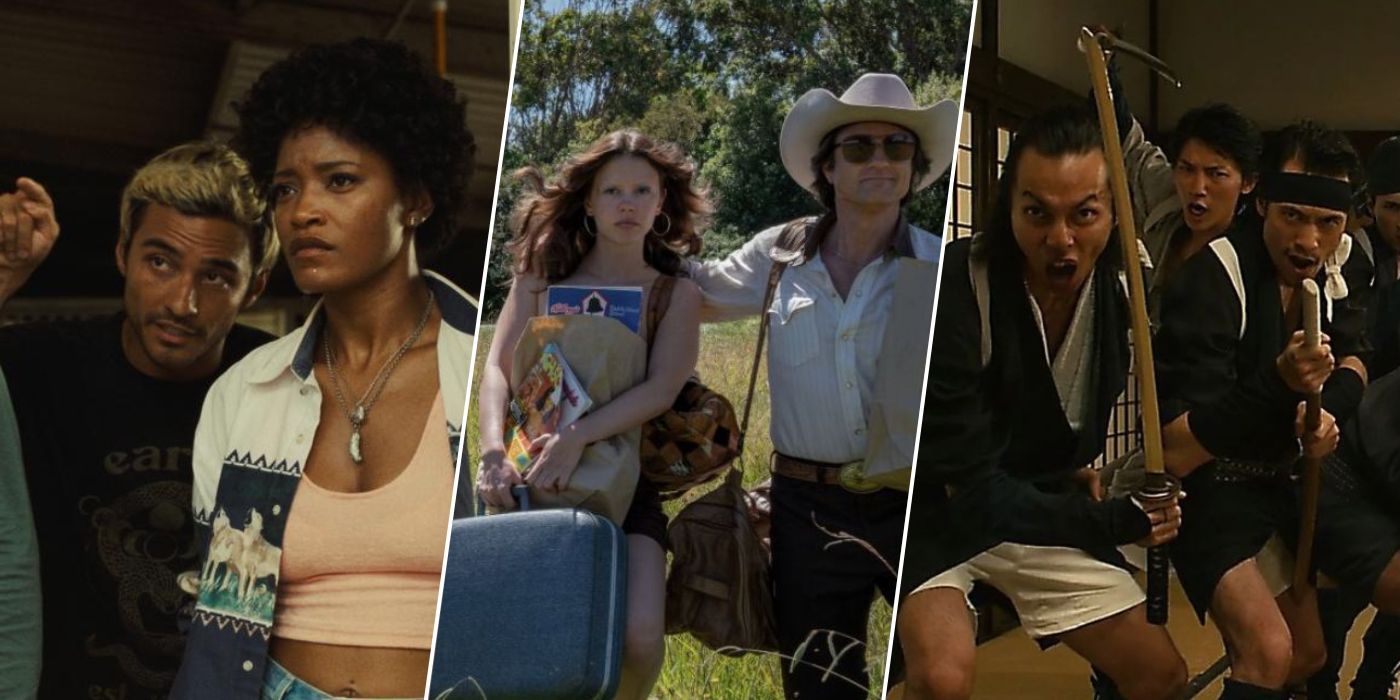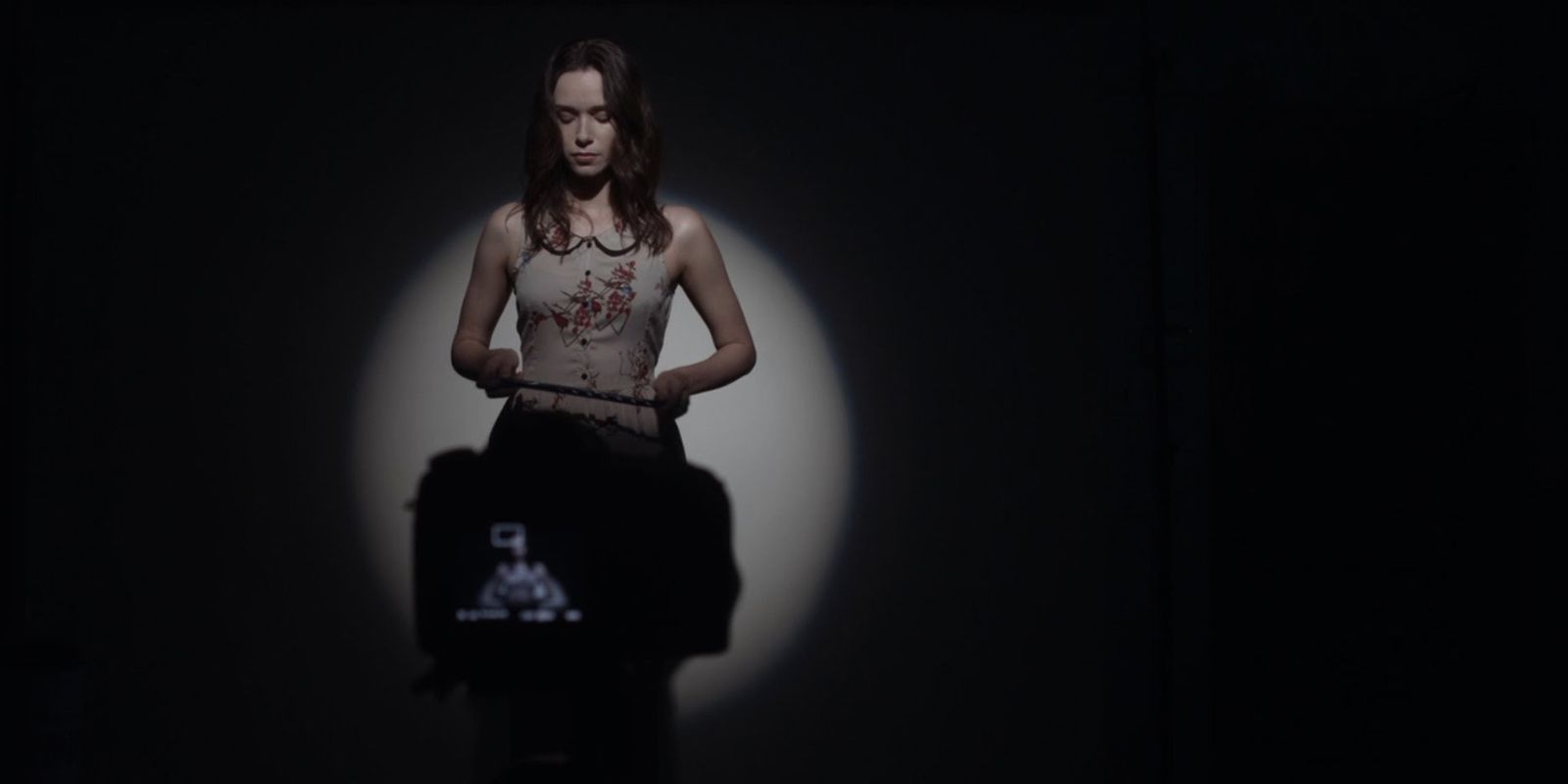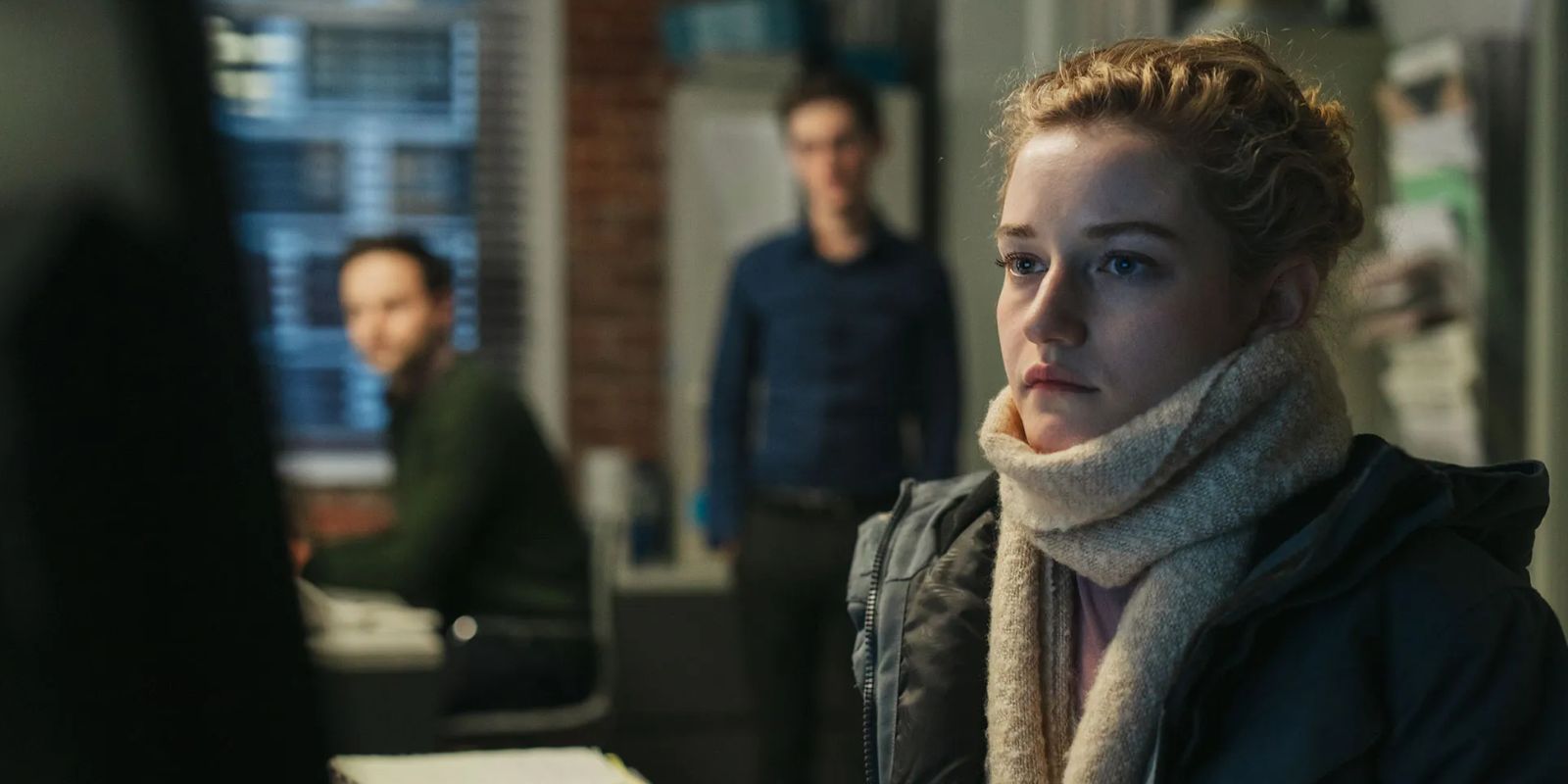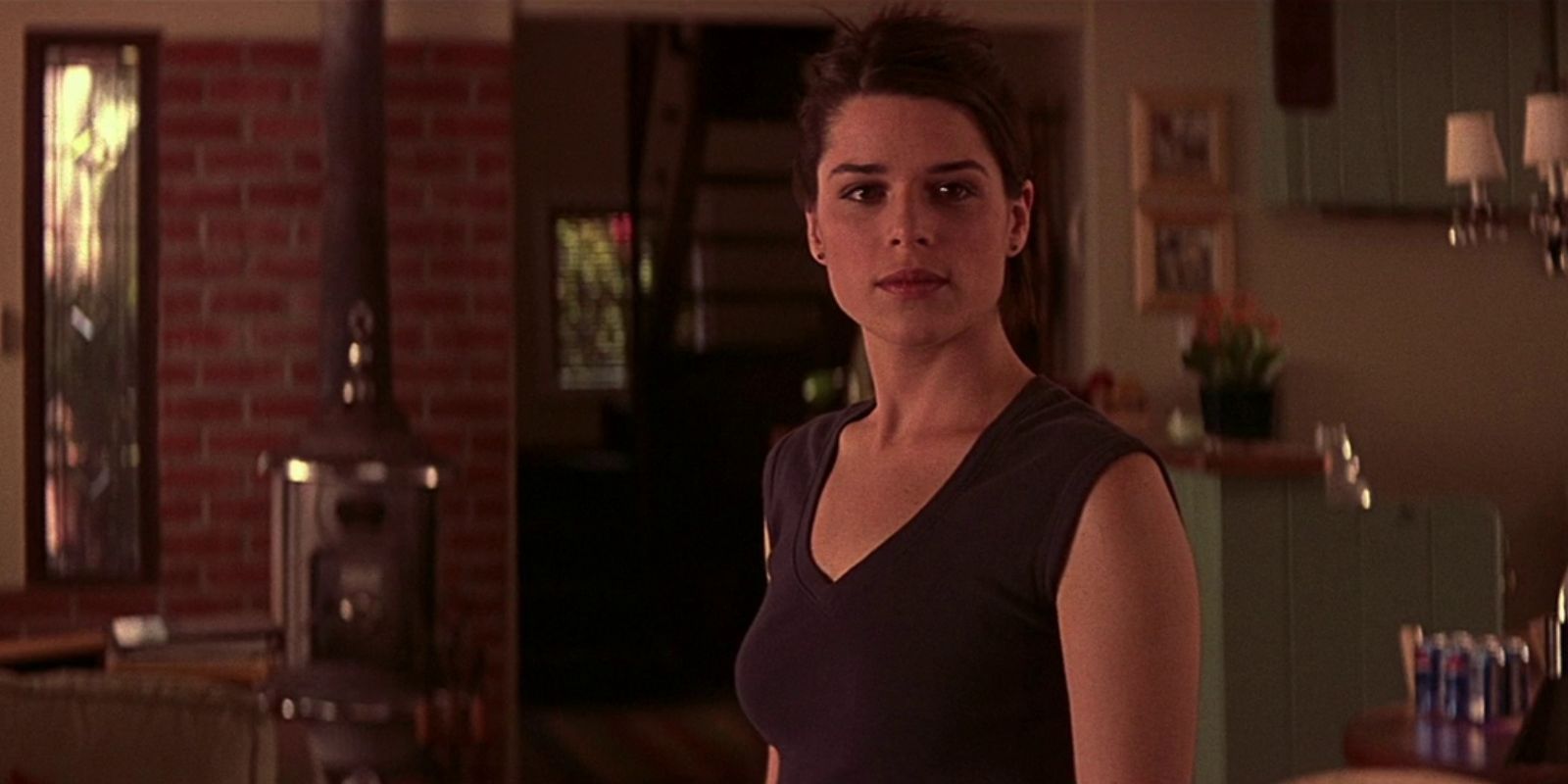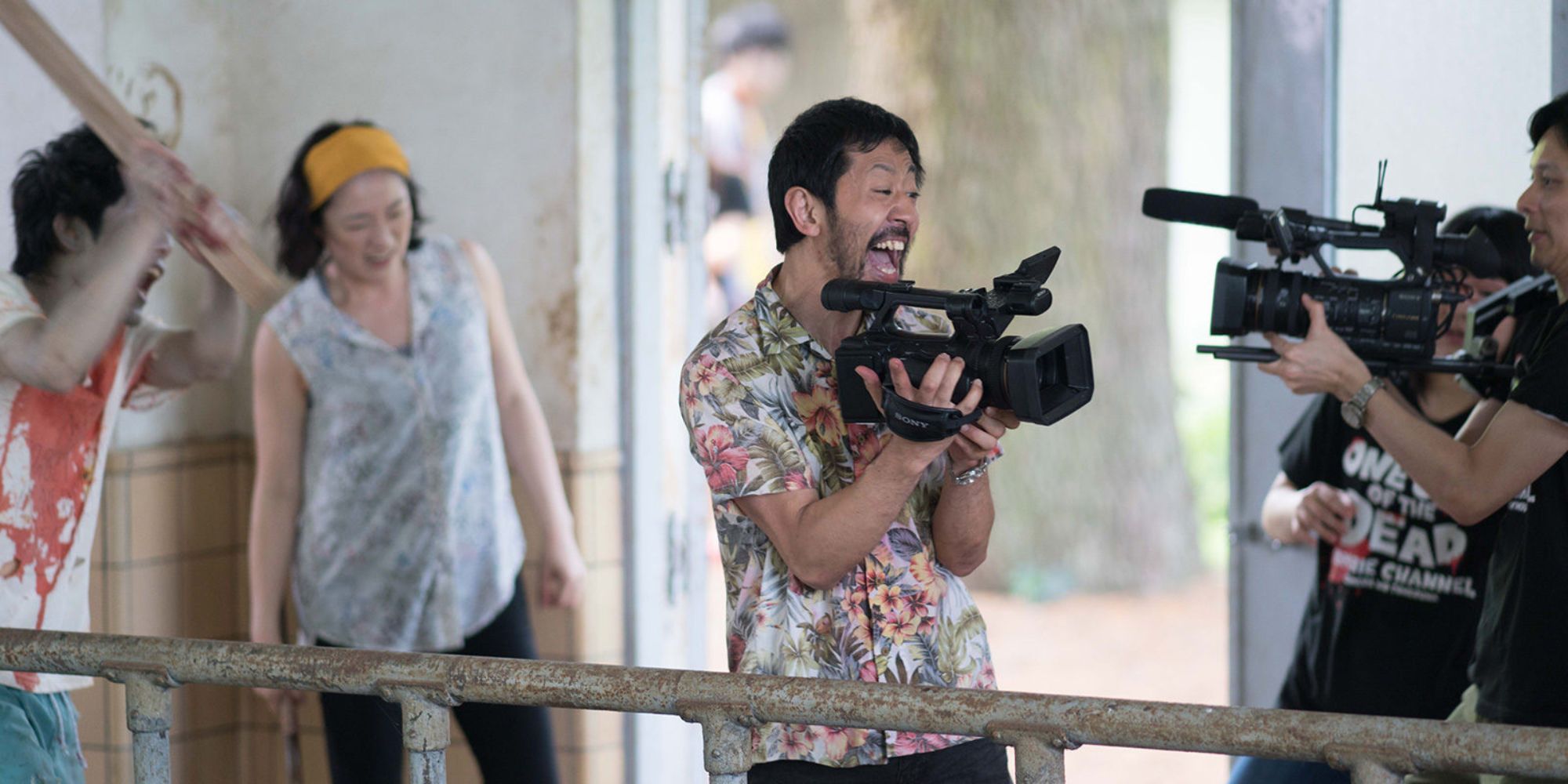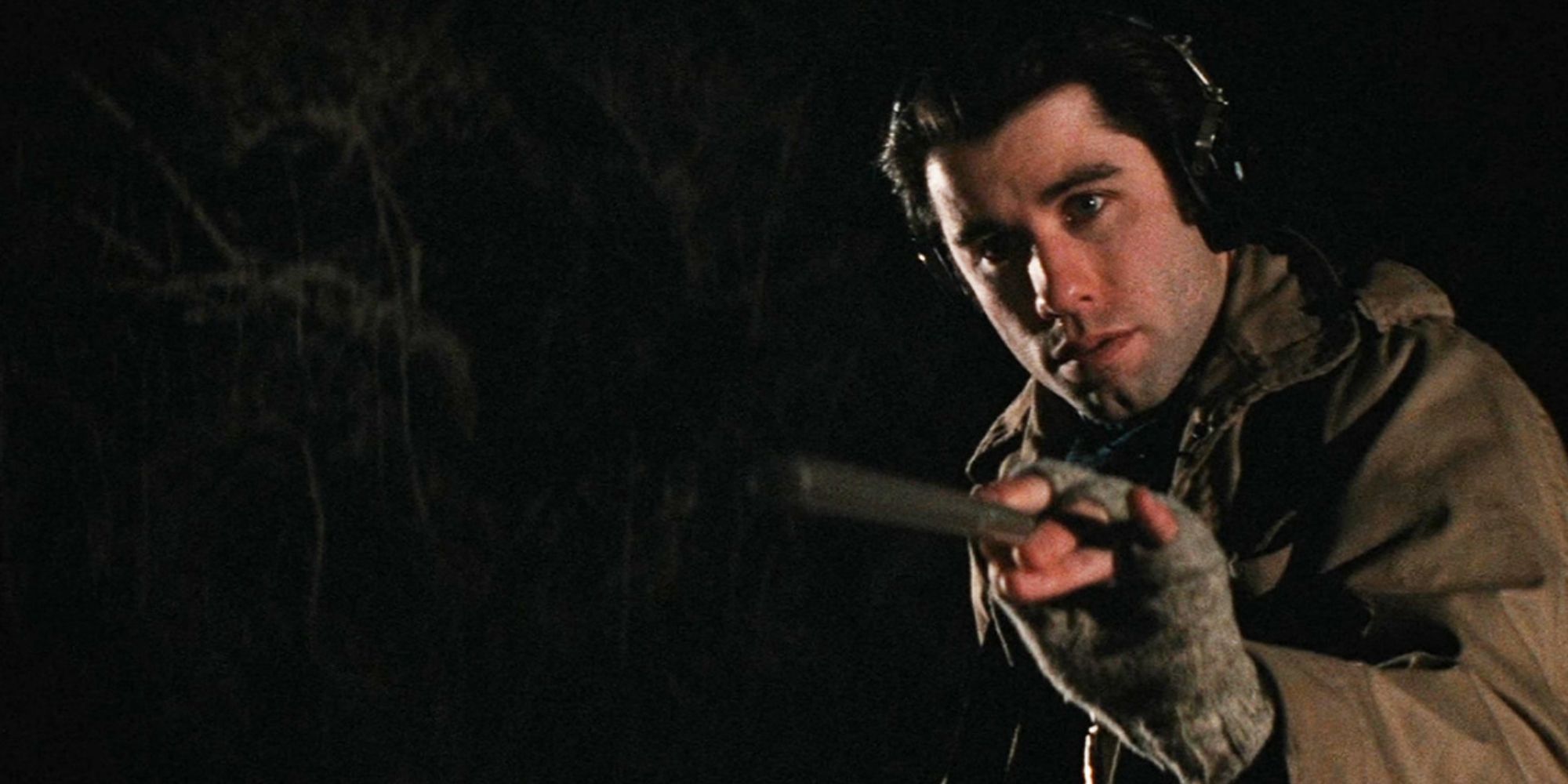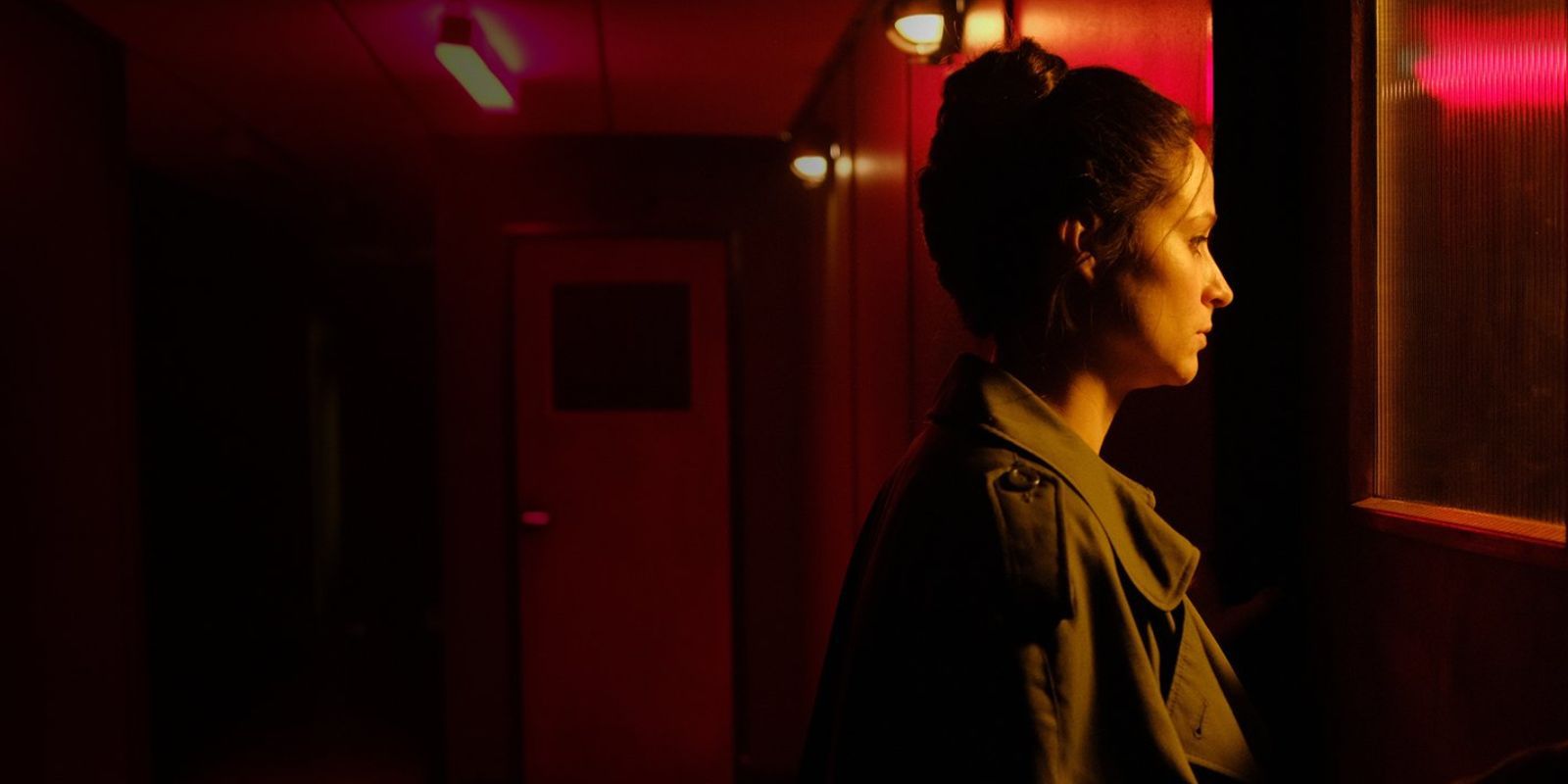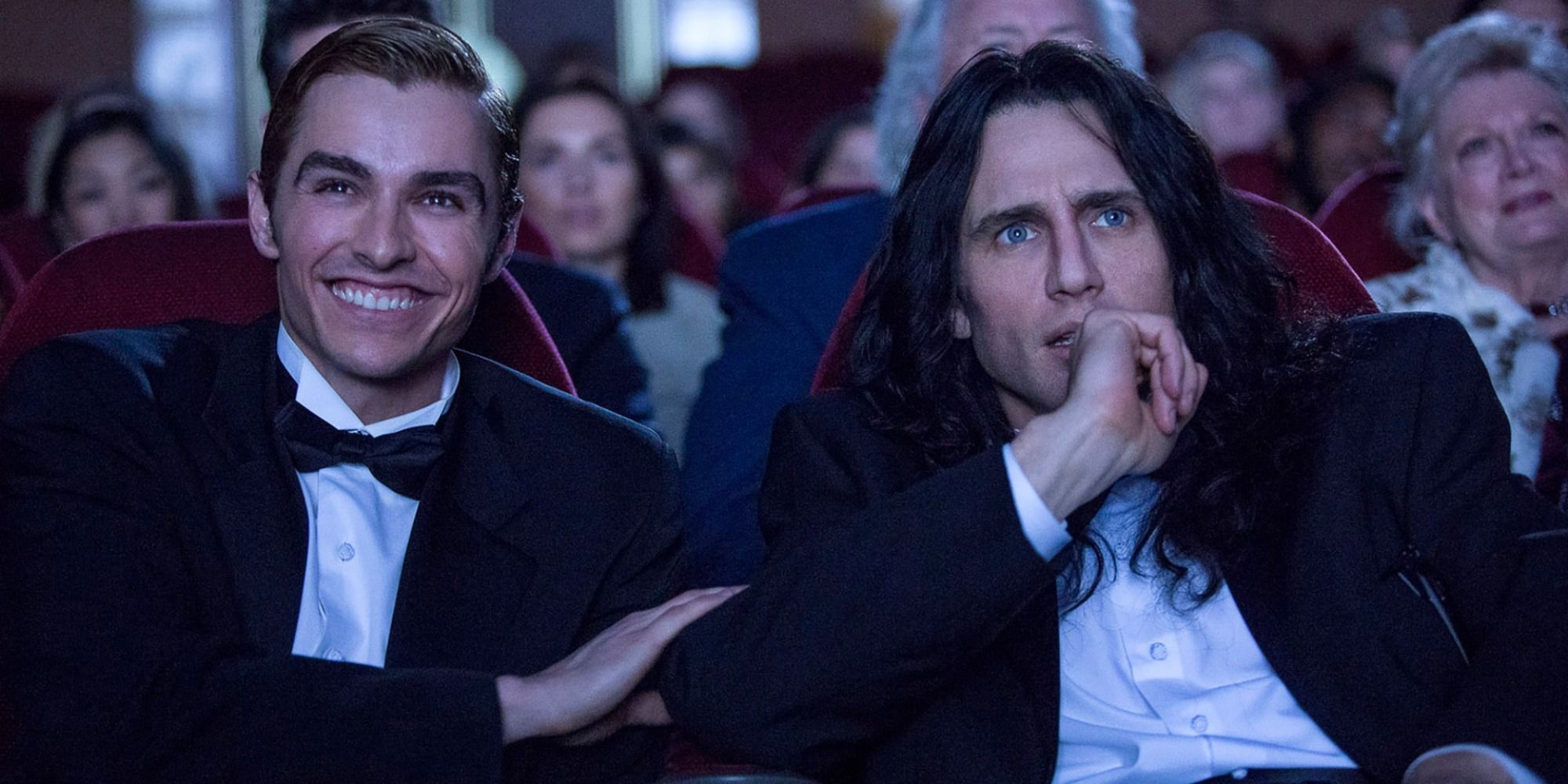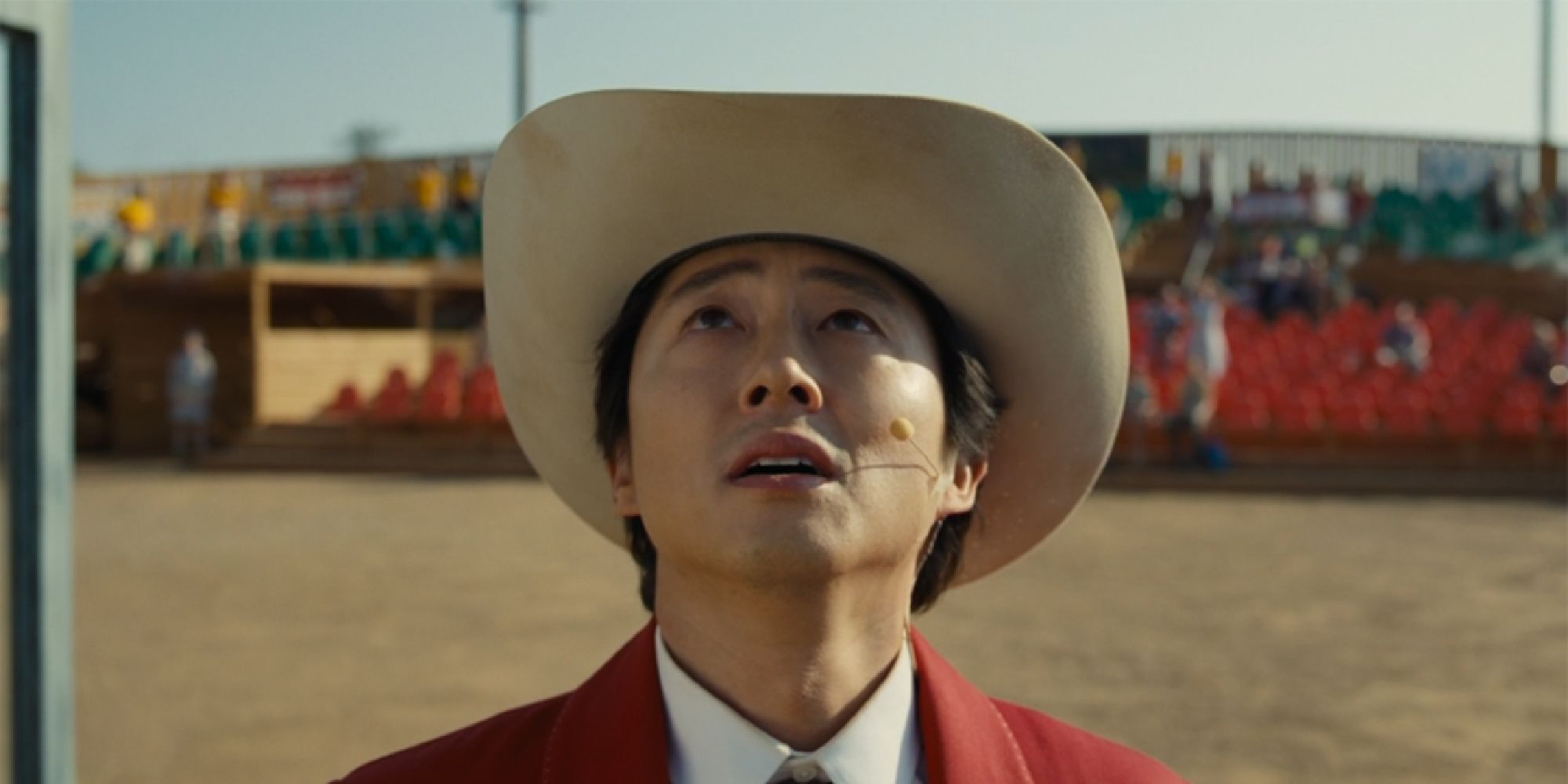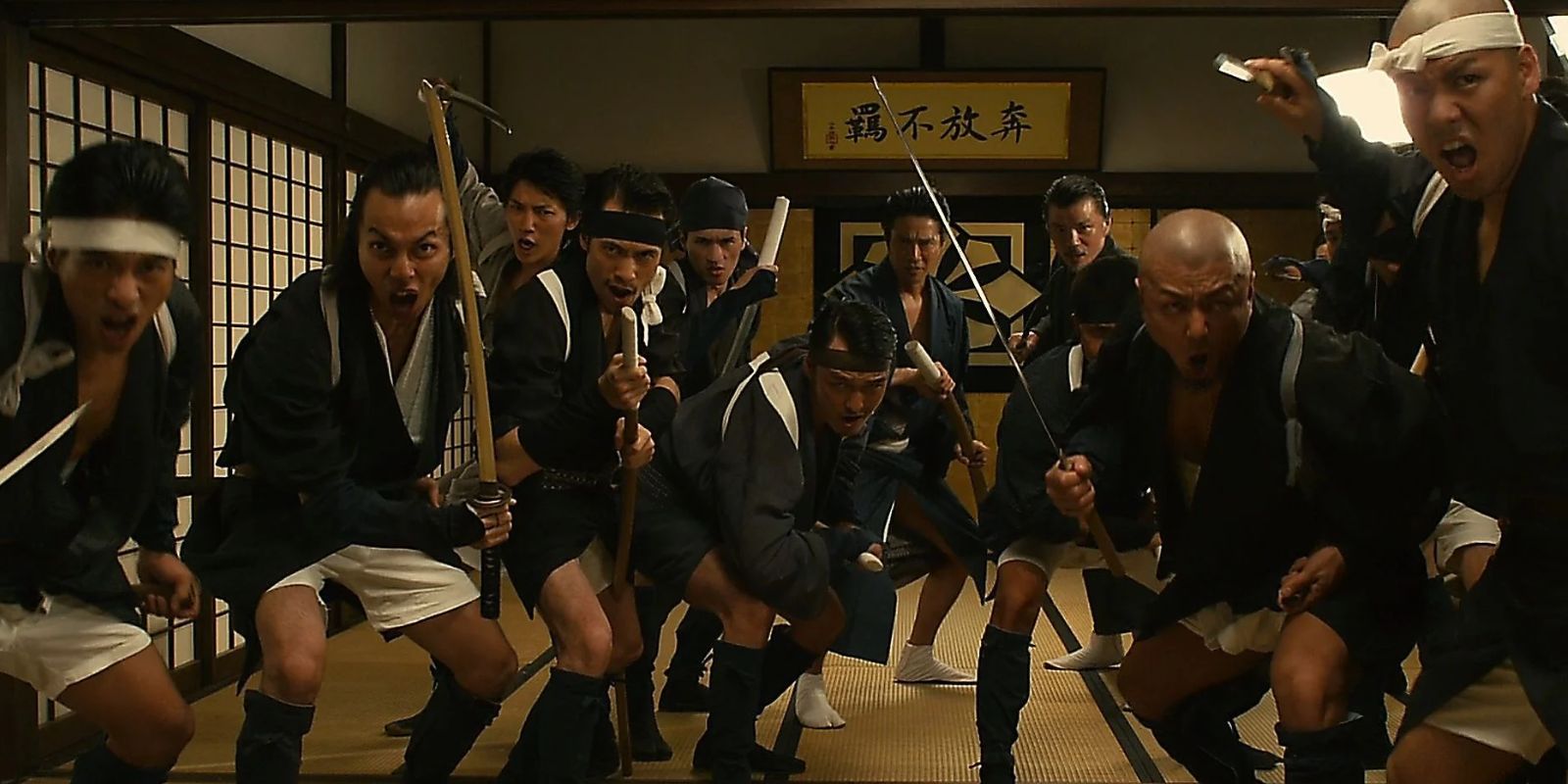Filmmakers love telling stories about filmmaking. Whether it's a glamorous period-piece set during Hollywood's Golden Age, or an intriguing and alluring peek behind the curtain set among studio back lots, love letters to cinema are a dime a dozen.
Less common are films that explore the uglier, rarely considered elements of stardom and the cinematic arts. Struggling actors who would do anything for a part, troubled child stars who exploit their trauma for financial gain, and creators who become so obsessed with perfection they lose themselves in the process; these are all harsh realities of the film industry that are seldom represented in the films the industry creates.
10 'Starry Eyes' (2014)
Sarah (Alexandra Essoe) is an aspiring actor who lives in Los Angeles and works as a waitress when she isn't auditioning. After a never ending slew of rejections, she finally catches the attention of someone with the power to make her famous. Unfortunately, the fame won't come for free.
Flying under the radar upon its release, and predating the Weinstein revelations by three years, Starry Eyes is a dark and supernatural exploration of the toxic quid-pro-quo arrangements many young people are faced with in the film industry. Utilizing body-horror and ritualistic motifs, Starry Eyes is a stark reminder of how rare it is to find success, and how much it can cost.
9 'The Assistant' (2019)
The Assistant follows Jane (Julia Garner) through a day in her life as an assistant to a high-level film executive. Jane works hard and completes routine office tasks throughout the day. On the surface, the film is very simple and stripped back. But bubbling underneath is implication, innuendo and ambiguous discomfort.
In director Kitty Green's post #MeToo exploration of the subtleties and microaggregations that comprise so much of workplace and sexual harassment, viewers are given a peek into draining, thankless, and hazardous life of a film industry assistant.
8 'Scream 3' (2000)
'Stab 3' is the newest movie based on the life of Sidney Prescott (Neve Campbell) and the infamous Woodsboro Murders. While Sidney is trying to move on with her life, a spate of killings breaks out around the production of 'Stab 3', and puts Sidney back in the cross-hairs of the Ghostface Killer.
The Scream franchise has always been fascinated with cultural attitudes towards filmmaking and murder, and where they overlap. This is especially true of Scream 3, which uses 'Stab 3' as a means of commenting on the cultural obsession with murder as content and the ethics of adapting tragedies into popcorn horror movies. While the makers of Scream 3 had a good idea how relevant this topic would be at the time of release, they hardly could have guessed it would be just as relevant today.
7 'One Cut of the Dead' (2017)
In an abandoned warehouse in Japan, an amateur cast and crew have gathered to make a low-budget zombie movie. Things go well for a while, until a real zombie invasion begins during the shoot and all hell breaks loose.
One Cut of the Dead is a low-budget film that follows the making of a low-budget film. The budget constraints are hardly enough to hold back the charm, creativity and energy that are plain as day throughout Shinichiro Ueda's film. Although One Cut of the Dead clearly has love for independent filmmaking, it never claims it's easy, and doesn't shy away from exploring the difficulties of making movies.
6 'Blow Out' (1981)
Jack Terry (John Travolta) is a film sound recordist. While spending a night in the park recording nature sounds for a low-budget slasher he's working on, Jack witnesses a car crash that kills a politician. When he later realizes his audio recording from that evening actually proves the crash was an assassination, he falls into a pit of danger and conspiracy.
Brian De Palma's cult classic Blow Out compares the obsession for truth to the obsession for perfection within art. While the surface level story beats predominately follow a political cover-up, the subsurface of this 80s classic is more interested in the question of how far one will go for perfection, and how much of one's pain and trauma they are willing to give to their art.
5 'Censor' (2021)
Set in the 1980s among the height of the 'video nasty' panic in the UK, Censor follows Enid (Niamh Algar) who works as a conservative and meek film censor for the British Board of Film Classification. As she spends her work days watching the most explicit content video nasties have to offer, she begins to believe that an actor in a low-budget horror film is in fact her missing sister.
Censor explores the oft overlooked, yet incredibly powerful cog in the cinematic machine that is responsible for rating films seeking release. Director Prano Bailey-Bond uses Censor to explore the moral panic over violence and taboo themes in media, and the persistent belief that violence in fiction begets violence in reality. The film also encapsulates an interesting time in history that seems to repeat again and again. A time when a pearl-clutching minority attempted to criminalize art and freedom of thought.
4 'The Disaster Artist' (2017)
The Disaster Artist retells the true story behind the making of The Room, a film widely considered to be the worst ever made. Based on the book of the same name by Greg Sisto, who starred in The Room alongside the enigmatic Tommy Wiseau, The Disaster Artist stars Dave Franco as Sisto and James Franco as Wiseau.
This film is one of duality, exploring both the highs and lows of filmmaking, and the double-edged sword of fame. While The Disaster Artist inspiringly demonstrates how a film can be yanked into existence through sheer force of will alone, it also highlights the viciousness of audience reactions and the ease with which power can go to a creator’s head.
3 'Nope' (2022)
Siblings OJ (Daniel Kaluuya) and Emerald (Keke Palmer) run their family’s horse ranch, which provides trained horses for film and television shoots. On the neighboring property, former child star Jupe Park (Steven Yeun) capitalizes on his childhood fame with a Western themed amusement park. When something strange arrives near the rural Californian ranch, it sweeps everyone into its orbit.
Nope juggles myriad themes and ideas at once, many of them related to or embodied by the art of filmmaking. Through Jupe, writer and director Jordan Peele explores the exploitative nature of fame and the use of trauma as spectacle and currency. Through OJ and Emerald, Peele reflects on the whitewashing of cinema history and considers what it means to capture what has never been captured.
2 'Why Don't You Play in Hell' (2013)
A group of amateur filmmakers are desperate to make a movie, and they won’t let their lack of resources or skills stop them. Meanwhile, two rival Yakuza factions are engaged in all-out warfare which stems from a years long rivalry. In the midst of all this, Yakuza Boss Muto (Jun Kunimura) decides to make his daughter’s dreams of becoming an actor come true, and hires the amateurs to make a movie in which his daughter is the star.
Why Don’t You Play in Hell? is doing more than just a lot; it’s doing everything. Comedy, action, Yakuza drama and filmmaking satire smash together to create this bombastic love letter to movie making in all of its glory and misery.
1 'X' (2022)
In 1979, a film crew pack up their van and head out to a farm in rural Texas for a film shoot. The elderly farm owners have agreed to rent out their guesthouse to the young group, completely unaware that their new guests intend to use the property as the set for an adult film shoot.
X is a film about obsession, desire, regret and taboo. Set in the late 70s, director Ti West uses the adult film industry as a stand in for exploitation and horror filmmaking at the time. Both were taboo in their own ways, and both were about to explode into the mainstream. This duality is further represented in the contrast between young Maxine and elderly Pearl (both played by Mia Goth). One struggles with the powerful desire for attention and sexual expression which has been stifled by the cultural norms of her time, while the other stands on the edge of cultural change, and the beginning of a movement of self-expression and artistic exploration.

